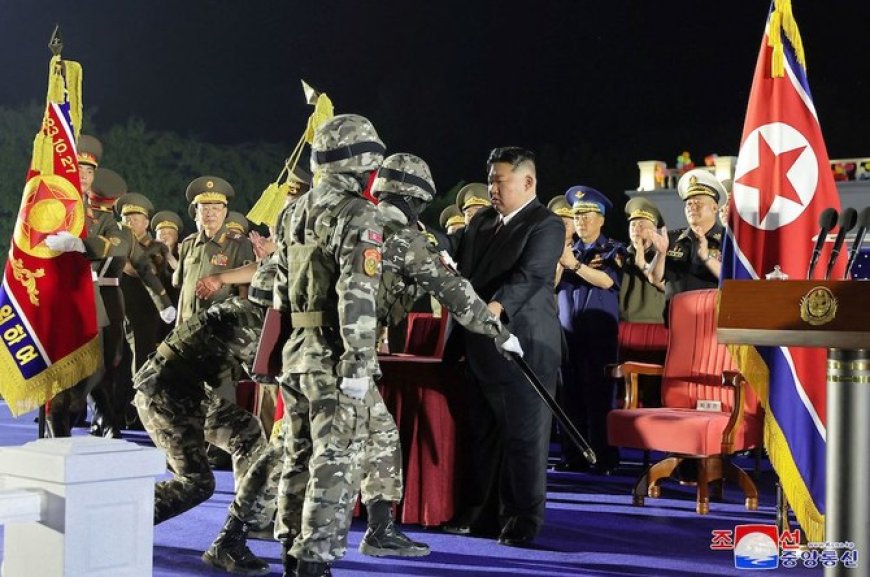North Korea marked a significant military development with the delivery of 250 nuclear-capable missile launchers to its frontline units, as reported by state media on Monday. Leader Kim Jong Un presided over the ceremony, emphasizing the need for a relentless expansion of the country's nuclear capabilities in response to perceived threats from the United States.
The Korean Central News Agency (KCNA) detailed that these launchers, freshly produced by North Korean munitions factories, are designed to fire tactical ballistic missiles, which are capable of delivering lower-yield nuclear warheads. Kim Jong Un stated that the new launchers would provide "overwhelming" firepower over South Korea, enhancing the practicality and efficiency of deploying tactical nuclear weapons.
Photos released by state media showed a large assembly of army-green launcher trucks and thousands of spectators in Pyongyang, highlighting the scale of the event. Fireworks marked the ceremony, reflecting the regime's focus on military strength despite recent domestic challenges, including severe flooding.
Regional and Global Reactions
Kim's declaration to prepare for prolonged confrontation with the United States comes amid heightened military activities by North Korea, including the expansion of mobile short-range weapons and the development of intercontinental ballistic missiles capable of reaching the US mainland. The intensified weapons tests and threats are seen as part of North Korea's strategy to pressure the US into recognizing it as a nuclear power and lifting economic sanctions.
In response, South Korea and the United States have increased their joint military exercises and refined their nuclear deterrence strategies. South Korean Joint Chiefs of Staff spokesperson Lee Sung Joon stated that the South Korean and US militaries are closely monitoring North Korea's weapons development, though further assessment is needed to confirm the operational readiness of the newly showcased missile systems.
Domestic and International Context
Kim's remarks at the ceremony underscored a commitment to strengthening North Korea's defense capabilities, citing the "increasingly savage" military cooperation between the US and its regional allies. He described the United States as a perpetual adversary, necessitating continuous improvement of North Korea's self-defense capabilities.
The ceremony took place against a backdrop of domestic adversity, with the country grappling with severe flooding that submerged thousands of homes and vast farmland near the Chinese border. Despite these challenges, Kim asserted the regime's resolve to enhance national defense without interruption.
Growing Alliance with Russia
In the wake of these developments, North Korea has shown a preference for strengthening ties with Russia. This alignment is part of Kim's broader strategy to forge alliances with nations opposing the US, reflecting a vision of a "new Cold War" and supporting Vladimir Putin's confrontations with the West. Russia has offered flood aid to North Korea, further cementing their expanding relationship.
As tensions escalate in the region, the international community watches closely, balancing concerns over North Korea's nuclear ambitions with efforts to maintain stability and security.














































